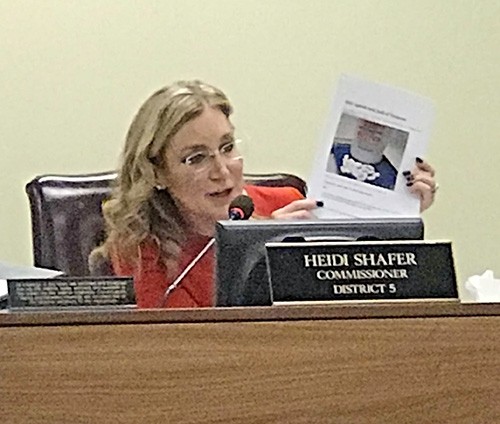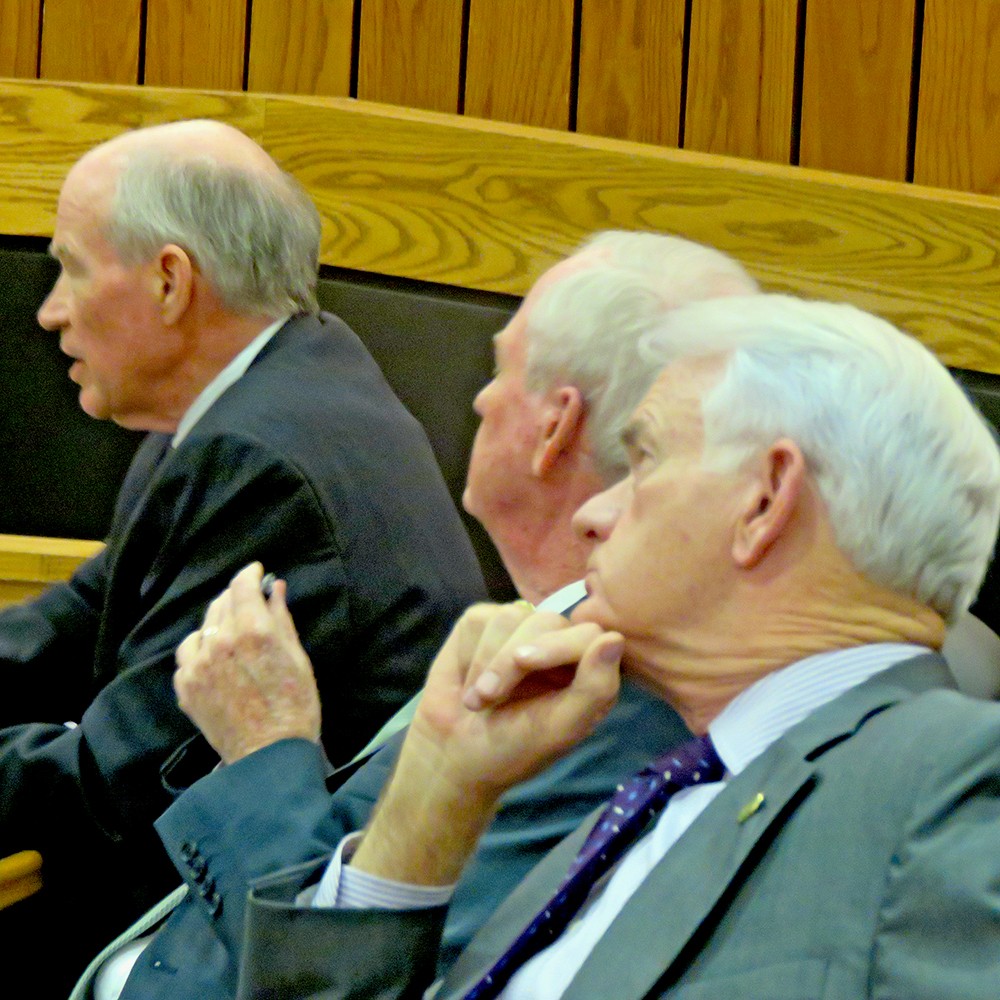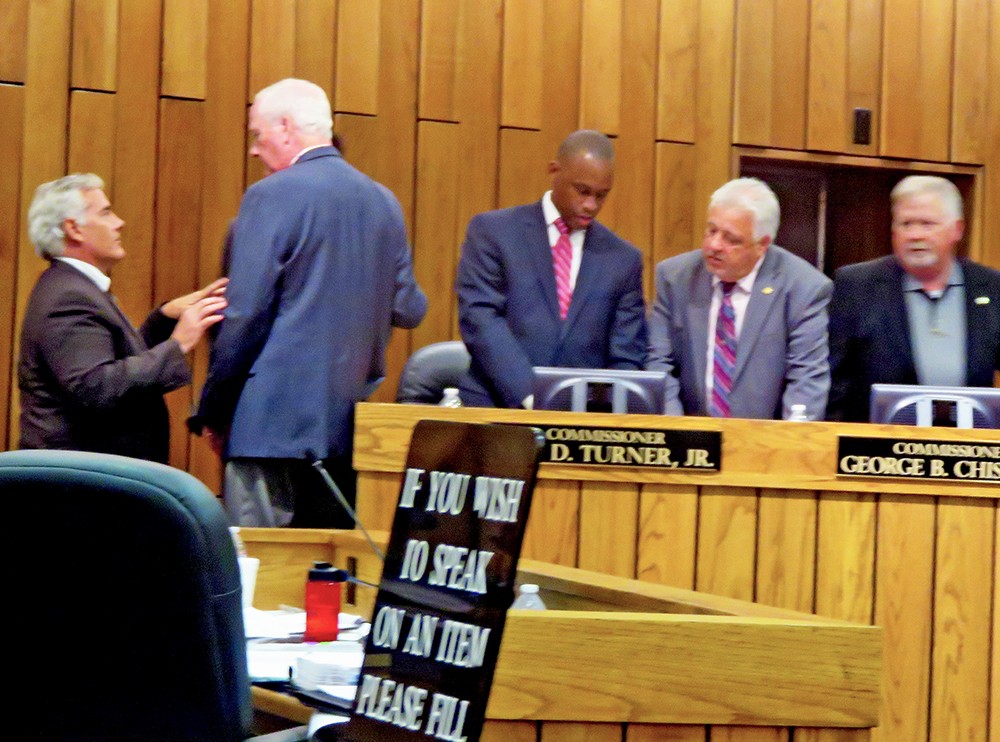 JB
JB
Shafer, making the case for immediate legal action against opioid distributors
As of Wednesday morning, armed with a fresh vote of confidence from her Commission colleagues, Shelby County Commission chair Heidi Shafer seems, at least temporarily, to have won her gamble in claiming the right to file for damages against a variety of opioid distributors on behalf of Shelby
County.
The nine members present at a special called meeting in Commission chambers, midway of the body’s regular Wednesday morning agenda schedule, voted 8-1 to support Shafer’s action, announced by her at a hastily called press conference last Thursday, in contracting with a national law firm to file such a suit.
County Mayor Mark Luttrell, objecting to Shafer’s action as a usurpation of the sole contracting authority he contends the county charter gives the administration, had called a follow-up press conference on Tuesday to announce a suit of his own in Chancery Court, in the name of “Shelby County, Tennessee” as plaintiff, seeking a restraining order and temporary injunction against Shafer’s action.
In the aftermath of Tuesday’s Commission vote — unanimous except for an abstention by Walter Bailey, who had unsuccessfully moved to defer the vote — both contending parties acknowledged that Chancellor Jim Kyle, in whose court Luttrell’s action was filed, had agreed to hear the issue on Tuesday.
Shafer, understandably ebullient following Wednesday’s vote, quoted Kyle as having urged the parties “to work things out,” while County Attorney Kathryn Pascover declined further comment.
Last week’s action by Shafer, who contends that the county charter gives her “limited executive function…to carry out our legislative initiatives,” authorized the national firm of Napoli Shkolnik, in association with Julian Bolton as local counsel, to pursue legal remedies against a wide variety of drug manufacturers, distributors, pharmacists, and physicians.
(Bolton, perhaps not coincidentally, has been serving as a “policy advisor” for the Commission, which attempted to hire him as its own independent attorney but was prevented from doing so by a ruling from the County Attorney, who claims ultimate legal representation for both the executive and legislative branches of county government.)
Luttrell continues to insist that only the administration has such authority and maintains that he and the County Attorney’s office have been in contact with several firms regarding potential legal action on the opioid matter and are on course to seek action expeditiously. Shafer and her supporters on the Commission have suggested that the administration has been dragging its feet in the matter of litigation.
In a brief but animated discussion in the Commission’s upstairs committee room, immediately preceding the body’s going downstairs into the County building’s main auditorium for the special called meeting, both Shafer and Commissioner Terry Roland made pleas for immediate action on behalf of the numerous Shelby Countians, including children, who have suffered the ravages of opioid addiction as a result of rampant distribution, legal and otherwise, of painkillers.
In response to Bailey’s questioning the urgency of immediate action, Roland said, “We’ve been working on this for three years” without the administration’s pursuing action. Meanwhile, he said, he has been going to the funerals of numerous friends who have overdosed on opioids. “You tell them it’s not urgent!”
His comments and similar ones by Shafer anticipated later emotional testimony by two women at the special called meeting downstairs, who cited instances of damaged and terminated lives due to opioid addiction.
Roland had also raised another matter, a recent circumstance in which Commissioners had rejected a recommendation from the administration to switch the insurance of county employees from Cigna to Aetna. He wondered aloud if the administration was resisting pursuing damages for opioid abuse because its preferred insuror might be in the distribution network.
That was one reference to a context of disagreement beyond the specific ones touched upon in the ongoing legal actions. The fact is that the Commission and the administration have been engaged in a serious power struggle for at least two years — one stemming from the Commission’s wish to expand its oversight of numerous matters, financial and otherwise, that had previously been left, more or less, to the administration’s discretion.
Shafer’s assumption of contracting authority in the current opioid matter, and the ultimate disposition of it legally, could well constitute a serious test case in redefining the respective powers of the executive and legislative branches of county government.
 JB
JB  JB
JB